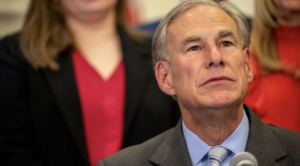Tennessee Republican Gov. Bill Lee has pledged to screen future GOP candidates to determine whether they will support school choice during the next election cycle.
Lee told WKRN News 2, “I have said many times that I am involved in elections and candidates. I have met with many candidates. Some are running for open seats, while others are incumbents.” This year, I will be talking to candidates about the freedom of choice and education for parents. “I want to find out where candidates stand on this issue because it is so important to me. So you’ll be seeing me talk to candidates.”
Tennessee Republicans, particularly those who represent rural school districts, are divided on the issue.
WKRN News 2 asked Lee if he would vote against Republicans who oppose school choice during the primary elections.
Lee said, “I’ll find out all about the candidates within a district to determine who I can best support and help.”
The local news said that the governor did not “explicitly” say yes or no.
Lee had hoped that a “revolution” in school choice would occur in the Volunteer State. However, in March, a bill on school choice was defeated in the state’s legislature. Lee’s bill on school choice was defeated in the last legislative session. This delayed any potential statewide voucher program at least until next year.

In an interview Lee hailed a “revolution happening right now in America around school choice.” Lee called on the state legislature to pass a bill worth $400 million that would overhaul public school testing for achievement and implement universal advances in school choice.
Corey DeAngelis, senior fellow at the American Federation For Children, believes that Lee’s dreams could come true.
DeAngelis stated that the “so called” Republicans had to learn a lesson after recent primary elections in which some incumbents lost because of this issue. He said that Tennessee shouldn’t have any problems passing the Republican Party Platform issue of school choices, as Republicans control both houses.
“Governor Bill Lee could help parents hold these fake Republicans responsible, as we saw with Texas Governor Greg Abbott during the primaries in March. The good news is, Gov. Lee told local journalists that he would “certainly talk to primary candidates about their feelings about school choice.”
DeAngelis made reference to ABC News’ coverage of comments Lee had made in April.
ABC News reported that Lee said, “I have always participated in primaries whenever there is an election in the state.” “But I will certainly be speaking to primary candidates regarding their feelings about school choice.”

Lee’s remarks echo those of two other GOP Governors who use the issue of school choices as a litmus for determining their support. Texas Gov. Greg Abbott and Iowa Governor. Kim Reynolds and Greg Abbott announced that they would be participating in the primaries of their respective parties to ensure that any candidates who oppose school choice are eliminated.
Abbott, who promised that school vouchers would be available shortly, tried to eliminate Republicans against school choice during this year’s primary elections.
Travis Clardy, a staunch opponent of school choice and rural Republican in Texas, lost his primary. Joanne Shofner, a 12-year incumbent in House District 12, defeated the incumbent in the primaries on March 5.
In the Midwest, Reynolds supported nine candidates in primaries who had a platform that was pro-parent. This helped to defeat the incumbent GOP candidates, who didn’t support this platform. She was able pass legislation allowing universal school choice.
Reynolds’ unprecedented Students First Act, a school choice law that was never before passed in the Hawkeye State, joined a number of other red states who had also adopted universal school choice legislation. The Students First Act allows any Iowa student the option to use public funds to pay private school tuition and other expenses.
Lee’s office has not responded to our request for comment.




